Apex Recovery Tennessee Accepts Insurance and
Offers Private Pay Options
Living with obsessive-compulsive disorder (OCD) can feel completely overwhelming, but at Apex Recovery Tennessee, you don’t have to face it alone. With a focus on high-quality care, we specialize in comprehensive OCD therapies, including inpatient and outpatient programs tailored to your needs. From advanced psychiatric care to evidence-based treatments like cognitive-behavioral therapy, Apex Recovery sets a standard for excellence. Our luxurious facilities in Columbia and Brentwood offer a calming and modern environment, complemented by a holistic approach to wellness that includes mindfulness and other therapeutic practices. Accessible from major cities like Nashville, Memphis, and Knoxville, we provide personalized care with the support of licensed professionals available 24/7.
Want to learn more about the cost of OCD treatment and how health insurance can help make it more affordable? Call Apex Recovery at (615) 703 4639 today. Our experienced team is ready to guide you through your options and help you take the first step toward recovery and relief from symptoms of OCD.
What is a Private OCD Treatment Center?
A private OCD treatment center is a specialized facility that offers focused care for obsessive-compulsive disorder. Private behavioral health centers provide personalized treatment plans, combining mental health therapies like cognitive-behavioral therapy (CBT) with expert psychiatric support. With a serene, private setting, they are designed to give people the tools they need for long-term mental wellness.
At Apex Recovery, we excel in private OCD treatment, using evidence-based approaches in both inpatient and outpatient settings. Our luxurious facilities in Columbia and Brentwood, Tennessee, provide a calming, understanding environment for healing, supported by our licensed clinical team. We combine advanced OCD therapies with fully holistic practices to provide high-quality care that fits your unique needs and requirements.
Obsessive-Compulsive Disorder Statistics in Tennessee
Tennessee is home to a population of over 7.3 million people, making it the 15th most populous state in the United States. Mental health challenges affect a significant portion of this population, with 37.3% of adults in the state reporting symptoms of mental health disorders or substance use issues in 2023.
Specific to obsessive-compulsive disorder (OCD), approximately 1.2% of U.S. adults meet the criteria for OCD each year, with women being more affected than men. This highlights the pressing need for targeted mental health support across our state.
The cost of OCD treatment in Tennessee can differ greatly, especially when considering inpatient, outpatient, and therapy-specific expenses. Without insurance, treatment can pose a daunting financial burden, encompassing therapy, medication, and intensive care. For those struggling financially, it’s critical to find accessible options, whether through sliding scale services or insurance acceptance.
Check Your Insurance with Apex Recovery
Apex Recovery accepts insurance and offers assistance in checking your mental health coverage levels. Knowing which obsessive-compulsive disorder programs your health insurance includes is a key step in receiving mental health treatment. Our experienced team is here to guide you through this process, making it easier to access the OCD recovery treatments covered by your plan.
How Much Does OCD Treatment Cost Without Insurance in Tennessee?
The average cost of OCD treatment without insurance can vary significantly depending on the type of care. Inpatient programs can range from $6,000 to $30,000 per month or $200 to $1,000 per day. Outpatient care is more affordable, typically costing between $2,000 and $10,000 monthly or $70 to $334 daily.
At Apex Recovery, we understand that not everyone has insurance coverage for OCD. That’s why we offer private pay options to make sure you can access the high-quality care you need. Our team is here to work with you to find a solution that fits your financial situation while prioritizing your mental health.
How Much Does OCD Treatment Cost With Insurance Coverage in Tennessee?
The cost of OCD treatment with insurance in Tennessee largely depends on your specific plan. Generally, with insurance, daily out-of-pocket costs for inpatient programs could exceed $150 for co-pays and deductibles, while outpatient care might involve co-pays of $0 to $50 per session. Everyone’s insurance is different and may cover all or a substantial part of the costs.
Apex Recovery can help you navigate your benefits and verify your insurance for you. We work to create customized programs that align with your coverage levels, helping you understand your out-of-pocket cost for OCD care in Tennessee. Our goal is to find effective treatment options that meet your needs, making high-end care accessible through your insurance coverage.
Free OCD Evaluation
Private Obsessive-Compulsive Disorder Treatment Centers in Tennessee
When considering private OCD treatment near you, Apex Recovery offers two premium behavioral health facilities in Tennessee designed to support your journey to wellness. Our OCD retreats provide a serene and supportive environment where you can engage in high-end, tailored care that is both reassuring and professional. We put your needs first, and focus on helping you find lasting mental health recovery through our expert mental health programs.
- Apex Recovery Brentwood: 209 Ward Cir, Brentwood, TN 37027
- Apex Recovery Columbia: 2710 Trotwood Ave STE A & B, Columbia, TN 38401
How to Find Obsessive-Compulsive Disorder (OCD) Treatment Near Me
Finding the right treatment for obsessive-compulsive disorder is a crucial step towards your future well-being. It can feel challenging, but we are here to guide you through the process. By focusing on specific search strategies and understanding key aspects of how different treatment centers operate, you can locate high-quality OCD care near you that provides just what you need.
- Search “OCD treatment near me” on Google: Start your search online using specific phrases. Try keywords such as “major OCD disorder treatment near me” or “obsessive-compulsive disorder clinics nearby” to find local options. This initial step helps you discover OCD treatment programs within your area that you would be able to travel to.
- Check Treatment Provider’s Tennessee Locations: Investigate mental health facilities with established locations in Tennessee. Cities like Nashville, Brentwood, and Columbia are known for having reputable behavioral health clinics. Apex Recovery has premium centers in both Brentwood and Columbia, offering accessible care throughout the state.
- Check if they offer Inpatient or Outpatient treatment: Determine if a facility offers the type of care for OCD in Tennessee that you are looking for. Inpatient residential treatment provides immersive support, while outpatient programs offer flexibility. Call us at (615) 703 4639 to discuss which option might align best with your mental health recovery journey.
- Check if they Use Evidence-Based Methods: Confirm that the behavioral treatment center uses evidence-based therapies for OCD. This helps make sure the care you receive is backed by scientific research and has proven to be effective. Apex Recovery employs therapeutic approaches rooted in the latest clinical understanding to support your healing.
- Ask About Amenities for Inpatient Obsessive-Compulsive Disorder Treatment: If you’re thinking about inpatient care for OCD, ask about the amenities offered. A comfortable and supportive environment can significantly enhance your recovery experience as you face your battles with OCD away from home.
- Check If They Accept Health Insurance: Confirm that the facility accepts your health insurance for mental health programs. Understanding your specific insurance coverage for OCD treatment is essential for managing your costs. Apex Recovery works with most major insurance providers, and we can help you verify your insurance with us.
How Much Does a Obsessive-Compulsive Disorder Assessment and Diagnosis Cost?
The cost of an obsessive-compulsive disorder assessment and diagnosis can range significantly, typically from around $150 to $500 without insurance. This fee often covers a thorough evaluation by a licensed mental health professional to understand your condition better and recommend appropriate OCD treatment options. For more complex diagnostic assessments, the costs may be higher.
At Apex Recovery, we want to remove financial barriers to seeking mental health care. We offer free OCD assessments as a part of our admissions process for behavioral treatment programs. This allows you to receive a professional evaluation and begin exploring your recovery path without having to pay anything upfront, prioritizing your access to the high-quality support you deserve.
How Much Does a Psychiatrist for OCD Cost in Tennessee?
Seeing a psychiatrist for obsessive-compulsive disorder in Tennessee without insurance can cost between $100 and $300 per session. Initial consultations are often on the higher end of this range, given the comprehensive evaluation involved. OCD psychiatrist fees typically include appointments, assessments, and medication management, which is often a key part of psychiatric care for obsessive-compulsive disorder.
Costs can vary based on the psychiatrist’s experience, their location within Tennessee, and the specific services they provide during your visit. While these rates are relatively high for self-pay, many people find that the support of a psychiatrist is invaluable for managing their mental health conditions and obsessive-compulsive disorder symptoms, improving their daily life considerably.
Average Cost of Inpatient OCD Treatment Without Insurance
The average cost of inpatient obsessive-compulsive disorder treatment without insurance in Tennessee can be substantial, generally ranging from around $6,000 to $30,000 per month. This pricing often depends on the level of specialized care, the duration of your stay, and the specific amenities provided by the facility. Higher-end or luxury mental health retreats may be at the top of this range.
Apex Recovery understands that the cost of mental health treatment can be a concern. We can create personalized residential treatment programs designed to meet diverse needs, helping you explore options even without insurance. We aim to make premium, comprehensive care accessible, so you can focus on feeling better.
OCD Assessment and Screening
Average Cost of Outpatient OCD Treatment Without Insurance
The average cost of outpatient obsessive-compulsive disorder treatment without insurance can range from approximately $2,000 to $10,000 per care plan. This broad range accounts for varying session frequencies, the type of therapy provided, and the overall duration of the program. Partial hospitalization programs (PHPs) and intensive outpatient programs (IOPs) will typically be on the higher end of this scale, while standard outpatient therapy sessions are usually less.
Apex Recovery works to make high-quality outpatient care accessible. We can create personalized programs that are designed to fit your unique needs and financial considerations, even without insurance. Contact us today to explore the most effective treatment options for your obsessive-compulsive disorder recovery, and we will support you every step of the way.
Average Cost of Obsessive-Compulsive Disorder Medication in Tennessee
The cost of OCD medication in Tennessee also varies significantly, based on the type, dosage, and whether you receive generic or brand-name versions. Without insurance, prescribed mental health medications might range from $1 to $50 per day, translating to $30 to $1,500 monthly. This does not include associated costs like psychiatrist visits for managing your prescription or therapy sessions, which are additional expenses.
However, these medication costs might be covered, at least in part, by your insurance provider. Apex Recovery accepts most major insurance providers, and we can help you verify your insurance coverage to get an idea of your potential out-of-pocket expenses for OCD medicines. This can help make the price of obsessive-compulsive disorder medication more affordable.
Cost of Fluoxetine (Prozac) for Managing Intrusive Thoughts and Compulsive Patterns
Without insurance, generic fluoxetine can cost approximately $4 to $35 per month for a typical supply, while the brand-name Prozac may range from $50 to $130 monthly. The price of fluoxetine depends on the dosage prescribed and the specific pharmacy. It’s always beneficial to compare prices at different pharmacies.
Fluoxetine is a widely prescribed selective serotonin reuptake inhibitor (SSRI) that helps manage obsessive-compulsive disorder by influencing serotonin levels in the brain. It is often used to reduce the intensity of intrusive thoughts and help break compulsive patterns, providing significant relief for many people.
Cost of Fluvoxamine (Luvox) for Addressing Mental Rituals and Thought Loops
For fluvoxamine, a 30-day supply of non-brand tablets can cost around $30 to $80 without insurance, while the extended-release capsules may be significantly more, sometimes over $200. Prices can vary based on dosage and the specific pharmacy.
Fluvoxamine is another SSRI commonly prescribed for obsessive-compulsive disorder. It is particularly effective in helping to alleviate the distress associated with mental rituals and repetitive thought loops, allowing individuals to gain more control over their thought processes.
Cost of Sertraline (Zoloft) for Reducing Repetitive Behaviors and Fear-Driven Responses
The cost of generic sertraline without insurance can be very affordable, sometimes as low as $2 to $10 for a 30-day supply with discount cards, though typical retail might be $10 to $50. The brand-name Zoloft will be considerably more expensive. This medication is widely available in generic form.
Sertraline is a frequently prescribed SSRI that helps to balance serotonin in the brain, often leading to a reduction in repetitive behaviors and calming of fear-driven responses seen in obsessive-compulsive disorder. It is a common first-line treatment due to its effectiveness for many people.
Cost of Paroxetine (Paxil) for Alleviating Obsessional Thinking and Fixations
Without insurance, paroxetine typically costs around $10 to $80 for a 30-day supply, depending on the dosage and immediate or extended release versions. Brand-name Paxil and Paxil CR are much more expensive, often hundreds of dollars. Many drugstores offer coupons to help with this expense.
Paroxetine is another SSRI often used to help alleviate the intense obsessive thinking and fixations that characterize obsessive-compulsive disorder. It works by adjusting serotonin levels, helping to reduce the anxiety and intrusive thoughts that contribute to OCD.
Cost of Clomipramine (Anafranil) for Treating Severe Compulsive Behavior
The cost of unbranded clomipramine without health cover can range from approximately $30 to $100 for 30 days, though it can sometimes be higher. Brand-name Anafranil is typically more expensive. It’s a tricyclic antidepressant, an older class of medication named for its three-ring chemical structure.
Clomipramine is notably effective for treating severe compulsive behaviors associated with obsessive-compulsive disorder, especially when other SSRIs have not provided enough relief. It helps to regulate brain chemicals, offering significant support for complicated ritualistic actions.
Cost of Escitalopram (Lexapro) for Controlling Recurring Thoughts and Urges
Generic escitalopram can cost approximately $5 to $40 for a 30-day supply without insurance, depending on the dose level and pharmacy. The brand-name Lexapro will have a higher price point. This medication is a popular choice due to its effectiveness and generally manageable side effects.
Escitalopram helps control recurring thoughts and urges often found in people with obsessive-compulsive disorder. It works by increasing serotonin levels in the brain, which can lead to a calming effect and less severe obsessive thoughts or compulsive actions.
Cost of Citalopram (Celexa) for Managing Obsession-Related Anxiety
Without insurance, citalopram may cost approximately $5 to $30 for a month’s supply, with the brand-name Celexa being more expensive. Prices for citalopram for OCD can change significantly based on the pharmacy and dosage. Discount programs can often lower these costs even further.
Citalopram is primarily used to help manage obsession-related anxiety, a common symptom of obsessive-compulsive disorder. By affecting serotonin levels, it can reduce the distress and anxiety that fuel obsessions, helping people feel more at ease.
Cost of Venlafaxine (Effexor XR) for Treating Complex Ritualistic Behavior
Off-brand venlafaxine without insurance can cost around $10 to $60 for a 30-day supply, while the extended-release version (Effexor XR) or brand-name versions will be more. The price of venlafaxine depends on the specific formulation and prescribed amount.
Venlafaxine is a serotonin-norepinephrine reuptake inhibitor (SNRI) that can be an option for treating the ritualistic behaviors in obsessive-compulsive disorder, especially when SSRIs are not fully effective. It influences both serotonin and norepinephrine, providing a broader medicinal approach to OCD symptom management.
Cost of Duloxetine (Cymbalta) for Mixed Anxiety and Obsessional Symptoms
The cost of duloxetine without health insurance typically ranges from $15 to $80 per month. The brand-name Cymbalta will be considerably more expensive, and prices can vary further based on quantity and the chosen pharmacy. Comparing costs for OCD medication near you can help you find the cheapest option.
Duloxetine is an SNRI that can be helpful for individuals experiencing both anxiety and obsessional symptoms related to obsessive-compulsive disorder. It addresses serotonin and norepinephrine together, aiming to improve mood, reduce anxiety, and make obsessive thoughts more manageable.
Cost of Aripiprazole (Abilify) as an Add-On for Treatment-Resistant Intrusions
As a generic, aripiprazole can cost around $50 to $200 for a 30-day supply without insurance, but the brand-name Abilify is significantly more expensive. As an add-on medication for OCD, its cost is often in addition to other prescribed treatments.
Aripiprazole is an antipsychotic drug sometimes used as an additional medicine for obsessive-compulsive disorder when people have not responded fully to standard medications. It can help lessen persistent intrusive thoughts and other challenging symptoms that are resisting treatment.
Cost of Risperidone (Risperdal) for Severe Compulsion and Thought Disturbance
Risperidone can be relatively affordable without insurance, often ranging from $10 to $60 for a month-long prescription, depending on dosage and form it comes in. Brand-name Risperdal will be more costly. It is available in various forms, including tablets and solutions.
Risperidone is an atypical antipsychotic that may be prescribed on top of other treatments for severe compulsion and thought disturbance in OCD patients. It helps people to manage intense symptoms and can provide more relief when other medications are not working well enough on their own.
Cost of Memantine (Namenda) for Refractory Obsessive Thought Patterns
Without private health insurance, non-brand memantine can cost around $20 to $100 for a 30-day supply, with brand-name Namenda being a lot more expensive. Prices for memantine in Tennessee can differ based on dosage and the specific drugstore providing it.
Memantine is sometimes used off-label as an additional medication for obsessive thought patterns, particularly when traditional medical treatments for OCD have not achieved desired results. It works by influencing glutamate, another neurotransmitter involved in brain function.

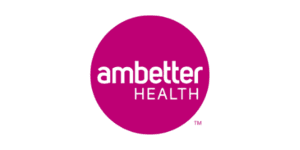
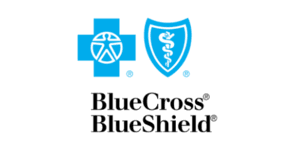
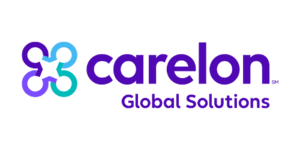
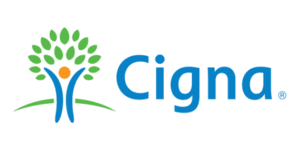

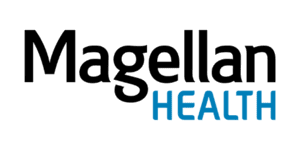
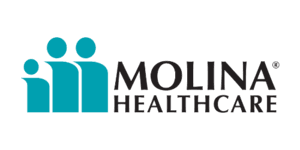
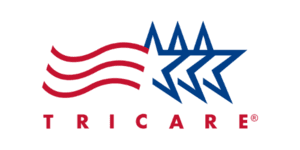

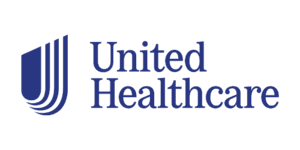
Check Your Health Insurance Coverage
"*" indicates required fields
How to Pay for Obsessive-Compulsive Disorder Recovery Treatment
Paying for obsessive-compulsive disorder recovery treatment in Tennessee comes with several options designed to make inpatient and outpatient care accessible. Many people use health insurance to cover costs, while others choose private pay, payment plans, or financing. Understanding these choices can help reassure you that help for OCD is in reach, and allow you to confidently arrange the financial aspects of high-quality mental health support for your journey.
Insurance coverage for OCD is often the most common and effective way to manage treatment expenses. Policies can significantly reduce your out-of-pocket cost for OCD care, making intensive mental health treatment programs near you more affordable. It’s always a good idea to verify your insurance benefits to understand what your plan covers, and you can do this by getting in touch with us today.
If you are exploring OCD treatment pricing in Tennessee, or have questions about how to pay for obsessive-compulsive disorder care near you, please contact Apex Recovery. We are ready to help you discuss all available payment options at (615) 703 4639, ensuring you can access the support you need when you need it most.
Statistics on Private Funding and Insurance for OCD in Tennessee
- In 2023, the Tennessee Department of Mental Health and Substance Abuse Services was allocated a budget of $731,661,600, which included $497,012,000 in state appropriations, aimed at connecting Tennesseans with mental health or substance use disorder treatment regardless of their ability to pay.
- An estimated 1.2% of U.S. adults met the criteria for obsessive-compulsive disorder in the past year, and half of these adults (50.6%) said their lives were severely disrupted due to OCD.
- Leading up to the pandemic, in Tennessee, 53.3% of adults with any mental illness in the past year had private insurance, compared to 59.6% of adults in the United States.
- In 2023, 59% of adult Medicaid enrollees with any mental illness received treatment in the U.S., which was somewhat above the rate for privately insured adults (55%) and far higher than for those who are uninsured (37%).
- In Fiscal Year 2024, The Tennessee Department of Mental Health and Substance Abuse Services administered over $36 million in state funding to the Behavioral Health Safety Net program, which provides outpatient mental health services for uninsured adults and children.
